#the guitar at the beginning>>>>
Explore tagged Tumblr posts
Text

Returning to my starkid phase!!!
#*general mcnamara voice* i never left#my art#starkid#starkid fanart#cinderella’s castle#ella ashmore#ella my love ella my light#i love her sm#step on your grave might be my favorite song in the show#the guitar at the beginning>>>>
1K notes
·
View notes
Text

Here’s Tommy also playing a guitar because why not hahah
#my art#the guitar is a telecaster#thomas hewitt#tcm 2003#tcm the beginning#tcm tommy#tcm#tcm fanart#tcm art#texas chainsaw massacre#texas chainsaw the beginning#texas chainsaw fanart#Texas chainsaw art#thomas hewitt fanart#thomas hewitt art#slasher#slashers#slasher art#slasher fanart#art#digital art#illustration#digital illustration#digital artwork#commissions open#open commissions#sketch#leatherface#leatherface fanart#leatherface art
256 notes
·
View notes
Photo
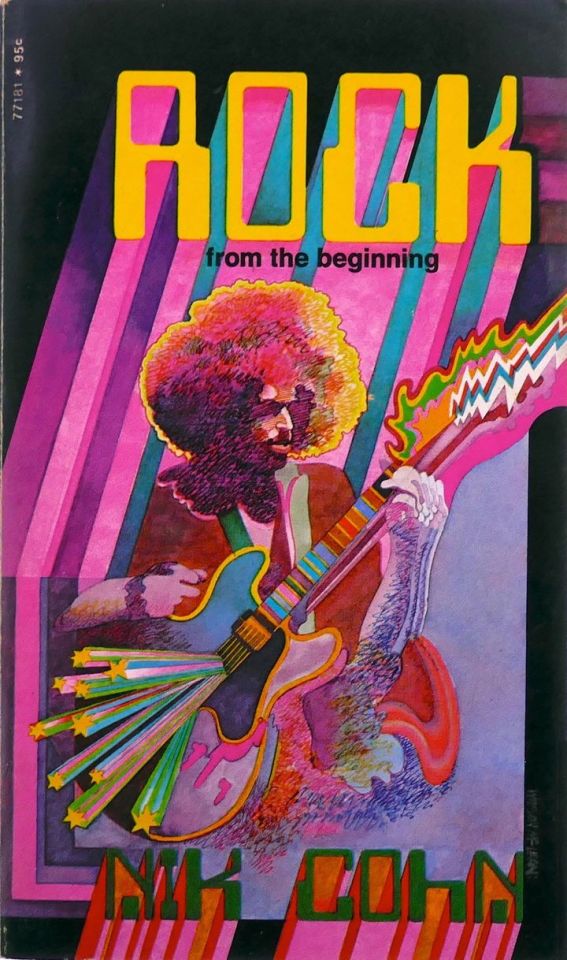
Groovy 1970 cover art by Wilson McLean for "Rock: From the Beginning," by Nik Cohn
1K notes
·
View notes
Text
⋆⑅˚₊ *·˚⋆。✵ ⋆⑅˚₊ *·˚⋆。✵ ⋆⑅˚₊ *·˚⋆。✵ ⋆⑅˚₊ *·˚⋆。✵ ⋆⑅˚₊ *·˚⋆。
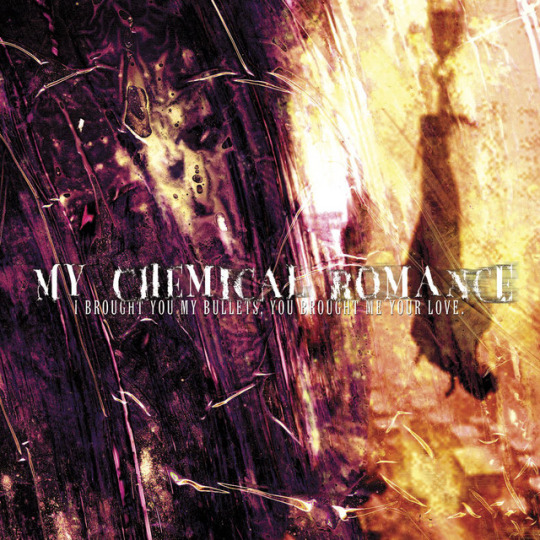

⑅˚₊· ˚ headfirst for the halos is planet j1407b ⋆⑅˚₊
#especially the beginning guitar part!!#ive thought this forever and just thought I should share!!#mcr#my chemical romance#mcr ecosystem#i brought you my bullets you brought me your love#planet j1407b#space#Spotify
58 notes
·
View notes
Text








happy anniversary to another one of the prettiest junhan looks (and whatever it did to the other members) ♡
fancams: [x, x, x, x, x, x, x, x, x, x] (also made gifs of jungjun not being able to hold hands like normal people here)
#xdinary heroes#gunil#jungsu#gaon#ode xdinary heroes#junhan#jooyeon#i was gonna add others but 1:20 is already pretty long for tumblr lol#to be clear i don't love the outfit (why were his jeans too long?) BUT HE LOOKED SO PRETTY#i think the others agreed. they were being Very Weird. happy pride month 💖#i don't know what happened to a couple of the clips with the borders(?) considering i downloaded them not cropped them but whatever#240602 was the beginning of my intense guitarz issues. had to have double head bonk i'm afraid#the day after joo said they should make their guitars kiss *duck smoking gif*#i was going to say something about 240601 but i already made a post about it a little while ago#the gifs i've linked are some of the first i ever made so they're not the best but. jungjun. also forever on my mind#couldn't find anything on twt for them besides the one i've used unfortunately#i need to rewatch that behind video. sigh#am i gonna crash out over every closed beta concert anniversary moving forward? potentially#sorry for having to deal with my problems <3#gunhan#jungjun#guitarz#junseok#odehan#muhaez#gaebabz#junjoo#chewyvids
44 notes
·
View notes
Text
#175
Mingyu: *hears a bang*
Mingyu: *picks up Jihoon and Chan*
Mingyu: JUN HYUNG GRAB THE SMALL ONES FIRST THEIR TINY LEGS ARE USELESS
#mingyu#jihoon#chan#woozi#dino#junhwi#moon junhui#wen junhui#incorrectsvt#seventeen#incorrect seventeen quotes#jihoon begins to search for his guitar#the guitar incident
66 notes
·
View notes
Text


#sleep token#sleep token gif#sleep token iv#does he want to be kissed?! XD.....some days I want to be a rockstar XD XD#because whatever Dire Straits are singing about.....money for nothing and the chicks for free or something like that XD#weird jokes day....sry#sitting here listening to dire straits money for nothing and damn that riff in the beginning and also the way how#Mark Knopfler plays it...he is so cool XD....I should really buy one “normal” guitar...there is a whole other world out there#when it comes to guitar playing....
86 notes
·
View notes
Text
I am once again suggesting you listen to this cover of Guilty as Sin?
#I won’t say I prefer this production to the original but I may be saying that actually#I love the little hmmmm in the beginning of the verses and I love the guitar#Spotify
65 notes
·
View notes
Text
very messy silly cover that i fuck up in a bunch but idrc so you guys get to see it bc i dont want to post it anywhere else
uhhhh ignore the camera quality, this was recorded on my computer and i dimmed my lights so the camera wouldnt be able to pick up my face
Song is dried roses by big thief
#lilith yaps#sillyposting#lilith is a music nerd#cover#big thief#adrianne lenker#music#guitar#song#singer#singing#Spotify#were going to ignore the fact that i do the lalala thing at the beginning#you guys dont need to know thats a thing i actually do
38 notes
·
View notes
Text
the witcher saga begins with dandelion being saved by yennefer and he tells her that he was wrong about her is indebted to her and that he will repay the debt to her in his songs, by making people know she is a good and fair lady . and later he also chronicles the journey of geralt’s company from brokilon to beauclair in his half a century of poetry, for posterity.
in the final act, the entirety of stygga castle is damnatio memoriae’d off of the face of the planet by the lodge of sorceresses who wished to write history in their favor, so the hanza’s graves (and… column) simply ceased to exist, it’s only a crater, dust, a nuclear blast site. even though it is the hanza whose questing alongside geralt made it possible for him to fulfill his (their) quest and whose sacrifices were in exchange for the return of ciri and yennefer to the proverbial realm of the living.
and furthermore, the battle of the bridge was not mentioned by any chronicles of history, and the old bridge itself, ruined from the battle, was replaced by a shiny new one.
and at rivia, yennefer’s presence was forgotten by all but one legend. but the majority of which said that triss stood alone on the “rivian hill” (… pile of refuse), and no one mentioned yennefer. even though she was the witcher’s eternal starcrossed lover and killed herself on top of his dead body hopelessly trying to ressurect him, and the two went off to avalon together.
but through the writing and song, “in the end,” dandelion made good on his promise to preserve their memory, and (alongside the folk stories) made sure people would remember them all as heroes… as families… a beautiful story…
even as monuments crumbled, and others tried to erase them.
#and the black book of ellander of course but no one knows who wrote it. my guess is ciri or dandelion though#sorry just listened to regina spektor for a bit and ‘the history books forgot about us and the bible didn’t mention us’#first draft of this post began with ‘you know what’s kind of awesum…’ so imagine i said that at the beginning#who would win: 10 of the most powerful political figures in the world . or a guy with his guitar and a hat with a feather stuck in it#the elbow-high diaries#f: a hansa’s a hansa#c: yennefer#s: i want to be by your side#the witcher books
62 notes
·
View notes
Text
its all over folks (making the playlist for the odysseus hades fic)
#i have to make it on youtube because it needs to begin with the jonathan sims 'i am not a brave man' audio with the electric guitar#odysseus is making plans
18 notes
·
View notes
Text
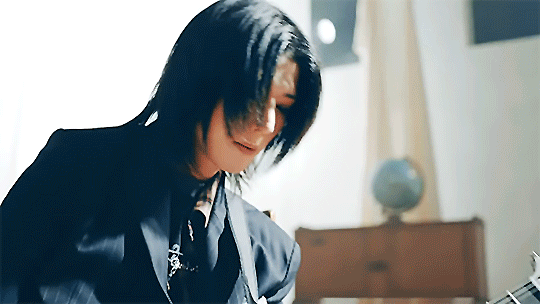

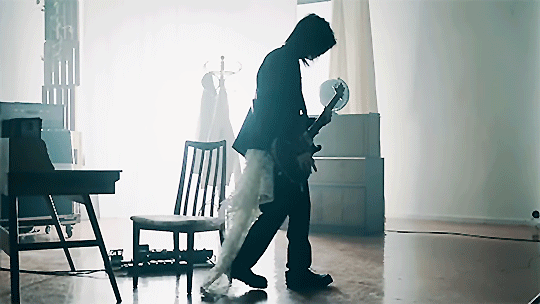

MONEY ON MY MIND
#xdinary heroes#jun han#han hyeongjun#forfreddy#THE MONEY SONGS !!!!#also love how the beginning of the snippets sound like when you miss a note in guitar hero#and the rest of the snippets sounds like you're playing the finale of guitar hero and it's the easiest thing you've ever done#also he's really fighting for his former spot as bias huh#but :( gaon is right there and he's looking so neat too and :(
80 notes
·
View notes
Text
genuinely obsessed with and mesmerized by this footage in particular but i cannot find any full performance anywhere (i scoured every haldyn hotel performance i could. believe me) and it doesn't help that some guy in the comments said the footage is very rare ... this is unfortunate
youtube
this is like the only video i can find of it (on youtube at least i have yet to check any other sites)
this sure is peculiar
#this is my indirect way of asking if anyone knows what exact concert/performance this is from#im bad at asking for help when it comes to my main interests#anyway im actually obsessed with every detail of this for some reason#i like the part at the beginning where hirasawa looks visibly confused by his guitar being out of tune and quickly fixing it#because ughhhh me TOO king i relate#also that is surely indeed hikaru kotobuki that i spy on that keyboard i know that for a fact#which is further reasoning to find this#.....somewhere#and i cant really read anything else in the video or title besides ''hirasawa susumu - haldyn hotel'' which is all it is it seems#WHAT IS THIS!!! MYSTERY PERFORMANCE#bees ramblings#susumu hirasawa#Youtube
11 notes
·
View notes
Text
#xenoblade chronicles x#xenoblade#no.ex 01#need this on my blog thx and i couldn't find an existing post when searching for the exact title#music#junk#i know this plays throughout various points in the story but the time it plays during nagi's affinity mission...ummm#i've rewatched that scene an embarrassingly amount of times :)#the guitars at the beginning are sooooo fucking good plus the transition into the battle....geez 🧎♀️
11 notes
·
View notes
Text

Added a little something to my guitar! (Yes it is a hidden biroace pride sticker) better quality pics + process below
But firstly, how would you guys feel if I started posting some guitar tutorials or covers here? Playing this thing has become such a big part of my life and I would love to actually share it with people!
Idk man, I might not. But maybe...
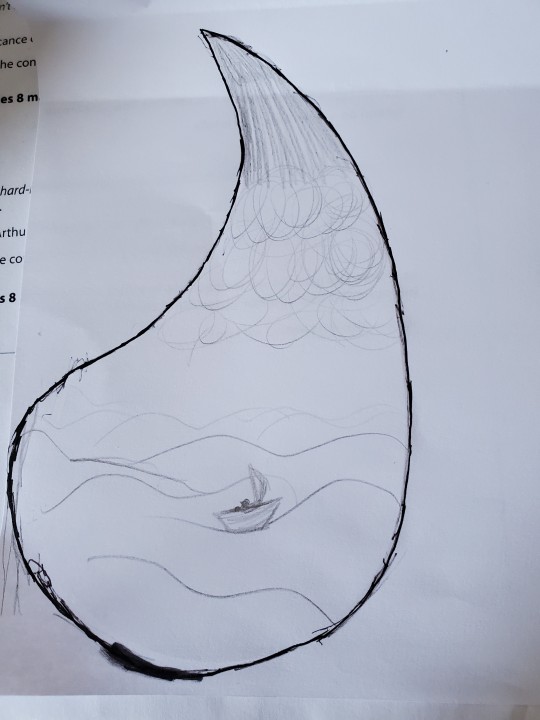


#guitar#bisexual#art#stickers#music#im actually so happy with how this turned out i love the clouds#my fingers got so inky from smudging but it was worth it lol#i also perhaps have writte some songs and maybe naybe am beginning to write a folk song about my tragic little lesbian oc maybe maybe#asexual
13 notes
·
View notes
Text
#31 - 'Love Yourself (1996 demo)' (Love Yourself single, 2019)

The 1996 demo of the song that would later become the stately, endlessly tasteful ‘Love Yourself’ is the earliest recording that we know to exist from Sufjan Stevens. Before Javelin, before ‘Mystery of Love’, before Carrie and Lowell, before ‘Impossible Soul’ and ‘All Delighted People’ and Illinois and ‘Romulus’, before even ‘Rake’ or ‘Happy Birthday’ or ‘Julia’, there was 1996’s ‘Love Yourself’, this chipped, scuffed, rain-beaten and wind-worn minute and sixteen seconds of pure, unmolested song. Welcome, everyone, to the ur-text of Sufjan’s catalogue. Make yourself at home.
If you’re ever hosting a Sufjan trivia night, here’s a fun question for you: excluding live performances and external remixes, which Sufjan Stevens song has the most released versions? Has to be ‘Chicago’, right? Original studio cut, of course, and then the acoustic, adult contemporary and ‘Multiple Personality’ versions on The Avalanche; coupled with the demo version released in 2016, that makes five. If you guessed ‘Chicago’, you’d be right, but only sort of. ‘Chicago’ is tied only with, of all songs, ‘Love Yourself’. Sufjan released three separate demos of ‘Love Yourself’, all developed before the finished song finally escaped his clutches in 2018: one recorded in 1996, one in 1999, and one in 2011(!), around the last leg of the Age of Adz tour. A fifth version, an instrumental reprise of the song on the official 7” single, rounds out the total. No Sufjan song has had such a prolonged gestational period as ‘Love Yourself’. He knew he had something of worth here, and spent over two decades trying – and, until 2018, failing – to make it work.
Most of his solutions to the ‘problem’ of ‘Love Yourself’ were electronic. Taken together, the various versions of ‘Love Yourself’ almost make for an excellent stylistic map of Sufjan’s career, from its earliest folky stages to its older, wizened, electronica-flecked apex (I say ‘almost’ because no versions have been released from his orchestral period in the mid-2000s, if any existed in the first place.) But before that apex could reached – before Sufjan found that most platonically perfect expression of ‘Love Yourself’ in 2018 – there was a college-aged kid, with a guitar and a tape recorder, covering the walls of his dorm room with cushions so his neighbours couldn’t hear him. To show this (no other word for it) insane development of musicianship and personality, Sufjan placed the song’s very first attempt right next to its very last attempt on the official single release. Perhaps the intent was to show continuity (of melody, of lyricism, of instinct), but the overall impression – charmingly, to be clear – is one of a cold, hard rip in time.
One cannot really overemphasise how archaeologically fascinating the existence of this version is. Sufjan, a long-suffering oboist in his youth, first began to learn guitar during his time at Hope College. He became good at it quite quickly, and by his final semester in 1998, Sufjan was ready to record an entire guitar-driven full length debut. 1996, though? The Sufjan of 1996 would have been in his second or third year at Hope and still a newcomer not just to acoustic guitar, but to songwriting, period. Given how much of this era remains unreleased, ‘Love Yourself (1996 Demo)’ is as close as we might ever get to hearing what Sufjan’s truest origins sound like. Every mighty tree was once a sapling; the 1996 four-track version of ‘Love Yourself’ is little more than a newly-sprouted seed. It may very well be one of the first songs he ever wrote.
The element of this version that betrays the most inexperience is the main guitar figure. Far from the busy electronics of later versions, the 1996 demo is centred on an endlessly-looping guitar vamp that breaks only for a small middle-eight. The perpetual swaying motion of the riff, with clearly audible slides up and down the guitar neck, feels harmonically neutral but rhythmically colourful and evocative of a waltz (one of the most significant differences between the initial and final versions of this song is the metre – 2018’s ‘Love Yourself’ is in a martial 4/4, whereas 1996’s ‘Love Yourself’ is in 6/8.) Considering that this riff was probably borne out of necessity – one imagines that a later take on this same arrangement would have included more chords – it is a surprisingly unique figure, one that effectively conveys warmth and soft golden light. Small guitar overdubs add texture, including one left-channel overdub at around fifteen seconds in that glides along with a genuinely pretty counterpoint. Do not confuse youthful simplicity with a bankrupt composition! It’s a song that could not have come from Sufjan at any other point in his life (quite like ‘Jamila’ in that sense.)
Most of the other pieces that would later make up 2018’s ‘Love Yourself’ are here, albeit in a truncated form. The melodic refrain, although sung in a weedy register and modified slightly to fit the 6/8 metre, is nearly identical to future iterations. Its lyrics likewise have the same general thrust, except there are less of them, and they are more repetitive. ‘Love yourself / You are the one thing I needed’ was clearly perfect enough as a mission statement to carry through, unaltered, all the way to 2018. That right there is the main take-away; the rest is noise.
But ‘Love Yourself (1996 Demo)’ has one clear rhetorical difference to the final version. It is a subtle one, but it’s there, and there is an argument to be made that it gives this demo a lyrical edge. There is an urgency of message to the 1996 version that isn’t replicated elsewhere – more insistence, more of a genuine sense of concern and care. Fewer lyrics exist here, but the ones that do are direct and mantra-like: ‘Love yourself,’ ‘Hold yourself’, ‘Change yourself’, ‘Make a shelf’, and, finally, ‘Love myself.’ It is as if Sufjan is legitimising the main message through repetition of structure. He knows it’s a hard conceit to stomach, so he’ll keep saying it until the words begin to sound true. Sincerity through simplicity – with 1990s Sufjan, it’s the name of the game.
There are two moments in particular here that stand out as tangibly different to the final version. The first: ‘Change yourself / Love yourself.’ Obviously the change in question might just be the act of transmuting one’s self-hatred into self-care; richer ways to read the song’s middle eight exist, though. The notion that changing parts of the self is ultimately not possible, and if itis then it’s tantamount to conceding defeat, is a myth. There is something liberating in admitting that certain portions of the tapestry of your character – ego, arrogance, envy, self-consciousness – are not what you want to contain within you. Changing yourself can very well be a path to loving yourself (or, expressed differently, making yourself more loveable.) It’s a surprisingly mature and worldly conclusion for a young man like Sufjan to reach, and seeing it in this early version of ‘Love Yourself’ is a real pleasure. Its omission from the final cut is a tragedy.
The second big difference: the ending. ‘Love Yourself (1996 Demo)’ has a narrative structure that is simple, effective, and not present in the 2018 song. Future versions of ‘Love Yourself’ have their gaze directed entirely outward: this song is an anthem for you, the listener, and nobody else. The 1996 demo is the only rendition to turn that gaze inward, and it does so in the very last lines of the song: ‘Love myself / I am the one thing I needed’. I am a very big fan of this sentiment as the rhetorical climax of the song and am perplexed as to why Sufjan thought to remove it in future versions. The change of address is a classically strong, satisfying narrative moment; it gives the illusion of a defined narrator with their own hopes, fears and need for affirmation. Suddenly the sentiments in ‘Love Yourself’ feel less platitudinous, more personal. Irrespective of all that, ‘Love myself / I am the one thing I needed’ is just a good and true message. We can get so easily caught up in the desire to affirm others that we forget to affirm ourselves. If you believe in everybody’s fundamental goodness and then recuse yourself from that same belief, what’s the use in that? It can only start with you, remember.
There are a good number of Sufjan fans who prefer this tiny, embryonic seed of a ‘Love Yourself’ to the giant, assertive redwood that it would eventually become. I do not consider myself among that group, but I absolutely understand their argument. Every other version of ‘Love Yourself’ feels like a massive (and massively impersonal) rah-rah anthem. It fits the song, to be sure, but embiggening the sound naturally causes the little things to get lost – things like the hug of a good friend, say, or the pleasure of making a small, attainable goal. All those things are contained in ‘Love Yourself (1996 Demo)’, a thoroughly earnest vehicle for sentiments that speak less to the world and more to you. And if that’s what it takes to get the message through, this is the version for you.
Back in a time before Javelin, before ‘Mystery of Love’, before Carrie and Lowell, before ‘Impossible Soul’ and ‘All Delighted People’ and Illinois and ‘Romulus’, before even ‘Rake’ or ‘Happy Birthday’ or ‘Julia’, when the only Sufjan fans were his family and his friends and himself, the phrase ‘love yourself’ might not have meant more – but it certainly meant something different. Something smaller. Something just for you.
#music#sufjan stevens#sufjan#folk music#origin stories#everybody begins somewhere#a happy man and his guitar
15 notes
·
View notes